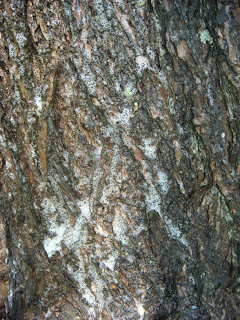Caught in their web: Spooky Facts about Vermont Spiders
 |
| A spider builds its web. |
Watching, waiting.
Crawling, sneaking.
Waiting, feeling.
SNATCHING.
Weaving. Wrapping.
Then r e c e d i n g …
Spiders hang on the cobwebs of our mind. So many limbs and
eyes cautiously waiting in the shadows for their next meal until they suddenly
run forward to catch it. Spiders have captured human interest from the earliest
histories, from the Greek tale of a boastful weaver named Arachne being turned
into a spider by the gods to the West African trickster spider god Anansi.
In Vermont, we have over 100 species of spiders including orb weavers, fishing spiders, garden spiders
and jumping spiders. Although we
encounter spiders in our day to day life, these masters of stealth star in many
nightmares. What makes them so terrifying and otherworldly?
Strange bodies. Spiders belong to the arachnid class
which includes other creepy critters like scorpions, mites, and ticks.
Arachnids have four pairs of legs and no antennae. Their skeleton is a hard
suit of armor that protects it’s body. Have you ever found a dead spider?
You’ll notice the legs are pulled tight to the body. Spider’s muscles can only pull their legs
toward their body. To push their legs out, they must pump fluid to extend their legs. Hydraulic powered legs!
Oozy silk. Whether it’s sticky and used to trap their
next meal or super strong threads to build their own shelter, all spiders
secrete silk from their bodies. Spider silk is more than 5 times stronger compared to steel relative to weight. Scientists have been trying to replicate spider silk at
large scales for decades to use to create super strong and lightweight products
like bulletproof vests.
 |
| A spider eats captured prey. |
Deadly venom. Most spiders that live in Vermont have
venom that is not exceptionally harmful to humans. There have been no confirmed bites of northern black widow or brown recluse in the past 15 years. Spiders
use their venom as a tool to catch a meal. Spider venom is injected into their prey to
stun or kill their prey. Spiders do not eat humans (we’re much too large). If a
spider bites a human, it is trying to protect itself from a perceived danger.
With modern medicine, lethal bites are quite rare.
Ancient knowledge. Next time you scream when a spider
catches you off guard, thank your ancestors. Recent studies suggest the deadly
legacy of spider bites may be a driving force behind the widespread fear of
spiders. Scientists found that arachnophobia is partially genetic. This means
that someone who has never seen a spider would still experience fear seeing a spider for the first time. One
possible reason could be that ancestors who feared spiders and were able to
avoid spider bites. This would result in them having a longer life and be able
to pass on genes to allowed future generations that would help them to avoid
spiders.
While spiders might give you a scare, many cultures around
the world consider spiders a symbol of good luck. In ancient China, spiders dropping from the
ceiling was viewed as good luck descending from heaven. While our eight-legged
neighbors can certainly produce a shriek, be a good neighbor to your friendly neighborhood spider.
Looking for more cool spider facts and activities? Check these out!
What spiders have you noticed around your house or in the woods? Have a cool photo of a spider web or spiders? Make sure to share them to our Facebook, Instagram, or Twitter accounts with #vtstateparks.
Are you afraid of spiders or do you see them as allies? When have you found a spider in an unexpected place? Let us know in the comments below!

.jpg)
.jpg)
Comments
Post a Comment
Feel free to let us know what you think.